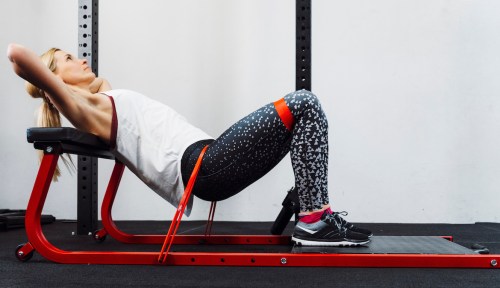Our editors independently select these products. Making a purchase through our links may earn Well+Good a commission
When it comes to choosing a way to move your body, experts largely say that the best activity is something you actually like enough to do regularly. (Can we all agree that life is too short for workouts you hate?) Yoga, pickleball, long walks with your dog, bike rides with your kids… they all benefit the body in major ways. But one form of exercise that’s been very widely studied scientifically is running.
Experts in This Article
science journalist and the author of Running Smart: How Science Can Improve Your Endurance and Performance
And there’s evidence of ample perks. Running is linked to lower feelings of depression. It increases blood flow to the brain, which helps with memory and concentration. It decreases your blood pressure and cholesterol levels. Heck, running can even add years to your life.
That last point is something science journalist Mariska van Sprundel talked about with leading running researchers for her book Running Smart: How Science Can Improve Your Endurance and Performance. It’s clear that running is good for us. But one question on van Sprundel’s mind: How many miles do you need to log on a weekly basis to reap the longevity benefits?
“First, it’s important to know that running any miles at all a week is beneficial for long-term health,” van Sprundel says. To her point, one scientific review taking into account 14 different studies on running and over 230,000 people found that runners (of all distances) had a 27 percent lower risk of dying during the study than non-runners. But van Sprundel says that another study found that the longevity benefits connected to running plateaued at a certain point.
“The biggest study published about running and longevity took into account over 55,000 people—14,000 of whom reported to be runners. The researchers followed all the participants for 15 years, keeping track of who died during the study and what the cause of death was,” she says. “After the 15 years, they determined that runners had a 90 percent less chance of dying from heart disease and other [cardiovascular] causes than non-runners. They also found that these benefits [plateaued] at 20 miles per week.”
Van Sprundel says the reason exactly why the benefits stop increasing after 20 miles is hard to determine. “Scientific studies about runners are tricky because it’s hard to know if people who are already healthy are drawn to running because they are in good health,” she says. She also points out that most people who run have other healthy habits integrated into their life as well, so it’s hard to single out running specifically. She also says that it’s not as if there stop being health benefits to running after the 20-mile mark; they just don’t continue to increase as they do before reaching that point.
This finding raises the question of whether running extra long distances, like marathons or ultramarathons, is actually good for the body. It’s something van Sprundel also talked to experts about; they told her that if someone runs more than 20 miles a week, they are still doing something that’s good for their long-term health.
“What researchers have found is that after you finish a marathon, there is a substance in your blood called troponin, which is a type of protein that indicates that some damage was done for the heart,” she says. “But the substance clears out of your blood after one or two days. So there’s no permanent damage.” So if you like running super long distances, she says to go for it.
Van Sprundel says that what’s more of an issue with running a lot is injury, not anything related to cardiovascular health. It’s part of the reason experts have told her that it’s best to run two to three days a week with recovery days in between, rather than being primarily sedentary during the week and launching into “weekend warrior” mode come Saturday morning.
There’s one more piece of running intel Spundel thinks everyone should know: You’re never too old to start. “All the experts I talked to told me that even if you don’t start running until your 70s or older, you can still gain a lot of benefits through it,” she says. All it takes is the desire and a pair of sneakers to get proactive about your health—and it could be an action that you could see pay off for years to come.
Sign Up for Our Daily Newsletter
Get all the latest in wellness, trends, food, fitness, beauty, and more delivered right to your inbox.
Got it, you've been added to our email list.











